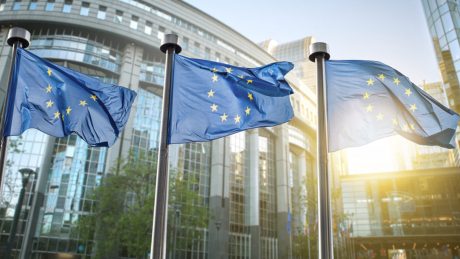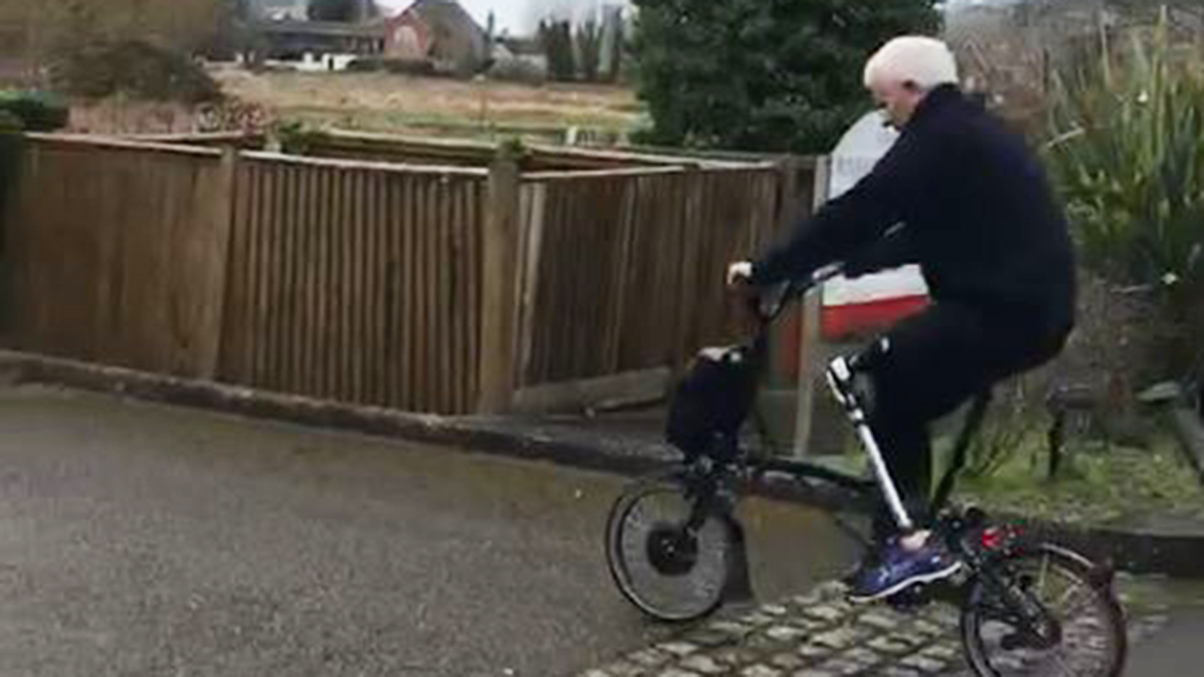Partner Chris Deacon and Senior Paralegal Sophie Burroughs write for PEOPIL, looking at a recent High Court decision that confirms the correct approach to be taken with the nature and scope of expert evidence in a claim for personal injury damages to which a foreign law applies.
In Mihailovskis v Amlin Insurance SE [2020 EWHC extempore], Master Davison allowed an application by the claimants to exclude the defendant’s Belgian law expert evidence. He dismissed the defendant’s cross-application for permission to rely on evidence from a Belgian medico-legal expert.
The decision follows the guidance originally set out by the Court of Appeal in Wall v Mutuelle de Poitiers [2014] EWCA Civ 138. In that case, the Court of Appeal made it clear that in claims for personal injury damages before the English court to which a foreign law applies, the rules of English procedure must be followed. The parties should only be given permission to rely on expert evidence as to the foreign law. It is not appropriate for the parties to have permission to rely on a report from a foreign medico-legal examiner or forensic expert, even though that may form part of the procedure for assessing personal injury damages in the courts of the country whose law the English court is required to apply pursuant to Rome II (Regulation EC 864/2007).
This detailed article considers the parties’ arguments and the court’s decision in Mihailovskis on the question of foreign law and foreign medico-legal expert evidence before going on to provide practical guidance on how to approach this issue in future cases.
Background
The Mihailovskis family suffered serious injuries in a road traffic accident which occurred on 16 July 2017 in Belgium. They were returning from their summer holiday in Latvia when a Belgian motorist ran into the back of their vehicle on the motorway. Both vehicles were travelling at approximately 50mph. One of the two children sustained a severe traumatic brain injury requiring an urgent craniotomy procedure.
Proceedings were issued in the High Court in 2018 against Amlin, the motor insurer of the driver who was responsible for the accident. Liability was admitted.
Under the Rome II Regulation, Belgian law applies to the assessment of damages. However, as the claim is being pursued in the English courts, the law applicable to the procedural issues in the claim is English law. This extends to the scope and admissibility of expert evidence obtained by both parties to assist the English court in assessing the claims for damages pursuant to Belgian law.
Parties’ positions on expert evidence
At a Case Management Conference (CMC) in June 2019, Master Davison gave the parties permission “to rely on expert evidence in the field of Belgian law”.
Following service of the parties’ Belgian law expert evidence in December 2019, the claimants issued an application seeking to exclude the report of the defendant’s Belgian law expert, which incorporated ‘by the back door’ a report by a Belgian medico-legal examiner/forensic expert.
The defendant filed a cross-application in April 2020, seeking permission to rely on the evidence of the Belgian medico-legal expert, arguing that the parties required this evidence for the proper determination of the claims before the English court.
The parties’ respective applications relating to expert evidence came before Master Davison on the 21 April 2020 where he heard argument on the following key issues:
1. Scope of permission for expert evidence on foreign law
The claimants’ position was that, fundamentally, the report served by the defendant and purporting to be on the question of Belgian law went beyond the scope of what the parties had permission to obtain and rely upon. The defendant had served a valuation report, which usurped the role of the judge in the assessment of damages. The defendant also attempted to introduce evidence from a Belgian forensic medico-legal expert, which it did not have permission to rely upon.
In contrast to the expert evidence from a specialist Belgian lawyer served by the claimants, there was very little by way of Belgian law in the defendant’s report.
The defendant’s position was that its expert was providing guidance to the English court and not a valuation. It argued that the evidence of the defendant’s Belgian law expert incorporating the views of the Belgian medico-legal expert did not attempt to value quantum and usurp the role of the trial judge. Instead, it was to aid the judge in providing guidance on how to undertake the assessment pursuant to Belgian law principles.
2. Adoption of Belgian procedure and rules of evidence
While a report from a specialist forensic medico-legal expert may be the normal procedure in the Belgian courts, the Belgian rules of procedure and evidence do not apply in this case. The claimants argued that the defendant’s position contravened article 1(3) of Rome II and the basic principle of private international law that it is the law of the forum that determines matters of evidence and procedure. The law of the forum in this case is English law because the English High Court is properly seised of the action.
The claimants further argued that the defendant’s report served to highlight how its expert had followed Belgian, and not English, rules of procedure in the preparation of the report. The defendant’s Belgian law expert relied on evidence from a Belgian doctor who: o had not had sight of the full evidence and who did not examine the claimants;
- sought to quantify the care claims without sight of care evidence in the form of statements or expert opinion;
- made treatment recommendations despite being a lawyer; and
- set out opinion as to his valuation without giving any reasoning or explanation.
Such an approach may have been acceptable to a Belgian court receiving this evidence, but it was not a report which complied with the requirements for expert evidence (in any field of discipline) under English rules of procedure and evidence.
3. The assessment of damages under Belgian law involves a complicated ‘Bareme’ system
In addressing the claimants’ position on Belgian rules of procedure being irrelevant to a claim before the English courts, the defendant maintained that under the Belgian ‘Bareme’ system, in order to work out the extent of a claimant’s temporary and permanent impairment, the court requires guidance from a medical expert. This expert can assess and apply relevant percentages under the ‘Bareme’ based on the individual claimant’s injuries and level of impairment/disability. The defendant argued that the English medico-legal experts would not be able to carry out this exercise because they have no experience of the ‘Bareme’ system. Therefore, this conversion should be carried out by Belgian medico-legal experts through a desktop review of the English medico-legal evidence, without it being necessary for the Belgian experts to assess the claimants in person.
In response, the claimants raised concerns as to the status of the Belgian medico-legal expert. If such evidence were permitted, it would have the effect of elevating the Belgian medico-legal expert to a “super” status sitting above and seeking to trump all of the other expert opinions in the case. The hybrid approach sought by the defendant, with a Belgian medico-legal expert giving evidence alongside the suite of English medico-legal experts for which Master Davison had given permission at the first CMC, would result in confusion and an approach to evidence that the trial judge would not look upon favourably.
4. The Court of Appeal decision in Wall v Mutuelle de Poitiers Assurances
The claimants relied on the Court of Appeal decision in Wall where the question of the nature and extent of expert evidence required to assess the claim for damages in cases to which a foreign law applies had already been dealt with. Wall involved a claim for damages following an accident in France in which Mr Wall sustained a spinal cord injury. In that case, the Court of Appeal resoundingly rejected the defendant’s submission that the English courts should adopt the procedure on expert evidence under the foreign law which applies to the claim. Lord Justice Longmore noted:
- “In these circumstances it is indeed inevitable that the same facts tried in different countries may result in different outcomes and I am unable to accept … that the English court must strive to reach the same result as a French court would, let alone his finishing point that evidence must be given to the English court in the form of a French-style expert report.”
- When applying foreign law, the English court does not need to strive to secure the same outcome as the courts of the country where the accident occurred. So, it does not need to follow the approach to expert evidence in that country slavishly.
The defendant submitted that there was a fundamental difference between the Mihailovskis’ claim and Wall. In Wall, the Court of Appeal held that the issue of which expert evidence the court can order should be determined by reference to English law. Accordingly, whether or not a desktop Belgian medico-legal report is permitted is to be determined by CPR Part 35. The defendant maintained that it was, therefore, within the case management powers of Master Davison to permit such a report.
The appropriate approach to foreign expert evidence in international injury claims
Master Davison accepted the claimants’ position on the question of Belgian expert evidence and ordered the exclusion of the expert report served by the defendant. The report served by the defendant did not fall within the scope of the permission he had given at the previous CMC, which allowed an expert in Belgian law on the issue of quantum. Master Davison commented:
“It is fair criticism of [the defendant’s Belgian expert] report that it says little about Belgian law and looks to be more of a valuation report…. The ‘Conclusions’ section of [the defendant’s expert] report reads like the summary of a schedule of loss or counter schedule. It stands in sharp contrast to the claimants’ Belgian law expert evidence, which sets out the principles of Belgian law from which an award of damages would be based. … [the defendant’s report] has the defect that it usurps the role of the trial judge. In many places, it gives [the defendant’s Belgian expert’s] opinion as to proper valuation.”
The defendant’s report was also outside of the scope of the permission given by the court because it incorporated and relied on underlying material from a Belgian medico-legal expert. The defendant’s Belgian law expert then used the opinion of the Belgian medico-legal expert (for who no permission had been given) to provide an assessment of the appropriate award of damages, which is not his role but that of the trial judge.
The report served by the defendant was contrary to the well established private international law principle that it is the law of the forum that determines the procedure. The defendant’s Belgian report attempted in effect to replicate a Belgian trial for which English laws and an English judge would be ill-equipped to deal with.
Master Davison reiterated the guidance laid down by the Court of Appeal in Wall as to the expected approach of the English courts when granting permission for expert evidence in a claim for personal injury damages to which a foreign law applies. He agreed that the claimants’ position in this case fully accorded with the approach of the Court of Appeal in Wall, noting:
“In [Wall], the issue was whether the court should adopt the approach of the French courts. This leads experts to provide overall opinion with the input of sub-experts. This approach was rejected as opposite to English evidence and procedure. There is a close parallel between the defendant’s approach in this case and the course the defendant in Wall wanted to adopt and which was rejected. In this case there would be an additional objection; to introduce a Belgian doctor, sitting above the English medical experts would be to adopt the hybrid procedure which would not truly lie in one camp or another. This would be a mess and the trial judge would not thank me.”
Practice points
From a practical point of view, Master Davison accepted in full the submission on behalf of the claimants as to how a case for personal injury damages to which a foreign law applies should, in broad terms, be approached:
- The medical experts should prepare reports that deal with the causation of injury, condition and prognosis.
- The lawyers for the claimant(s) and defendant(s) should present their case on recoverable damages in a schedule and counter-schedule, bearing in mind the principles of the foreign law (including the application of ‘soft law’, which in the case of Belgian law includes the tableau indicatif, the Belgian and European ‘Baremes’). The correct procedure had been followed by those representing the claimants in this case in the preliminary schedules of loss.
- In the absence of agreement between the parties following service of the schedules and counter-schedules, it is for the trial judge to determine the assessment of damages based on the evidence before him.
- To modify or adapt the procedure, by introducing a “super-expert” who converts other expert opinions into percentages which can be applied to the ‘Bareme’ or (in the case of Belgian law) tableau indicatif would be contrary to English procedure and evidence.
The question of how and what type of expert evidence should be permitted by the English courts in a claim to which a foreign law applies is one that is frequently before the courts at all levels in England and Wales. The decision in Mihailovskis v Amlin adds support to there being no place for foreign medico-legal or forensic expert assessment reports in addition to (or in place of) a foreign law expert report. This is despite the fact that such a medico-legal assessment report may be the usual practice and procedure in Belgium, France, Spain or the courts of whichever country’s law the English court is required to apply when assessing a claim for personal injury damages.
You can find further information regarding our expertise, experience and team on our International Injury page.
If you require assistance from our team, please contact us or alternatively request a call back from one of our lawyers by submitting this form.
Subscribe – In order to receive our news straight to your inbox, subscribe here. Our newsletters are sent no more than once a month.






